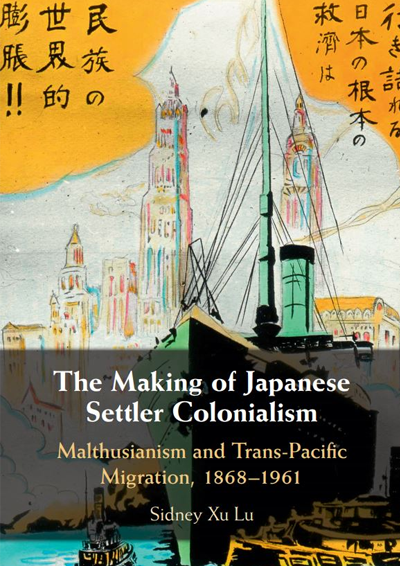The Making of Japanese Settler Colonialism
Malthusianism and Trans-Pacific Migration, 1868–1961
This innovative study demonstrates how Japanese empire-builders invented and appropriated the discourse of overpopulation to justify Japanese settler colonialism across the Pacific. Lu defines this overpopulation discourse as 'Malthusian expansionism'. This was a set of ideas that demanded additional land abroad to accommodate the supposed surplus people in domestic society on the one hand and emphasized the necessity of national population growth on the other. Lu delineates ideological ties, human connections and institutional continuities between Japanese colonial migration in Asia and Japanese migration to Hawaii and North and South America from 1868 to 1961. He further places Malthusian expansionism at the center of the logic of modern settler colonialism, challenging the conceptual division between migration and settler colonialism in global history.
This title is also available as Open Access.
Reviews
‘Brilliantly researched and conceptually sophisticated, this book offers a new interpretation of Malthusianism and will have a huge impact on the way we think about Japanese migration while complicating the divide between studies of the Japanese empire and Japanese immigration to the US, Hawaii, Latin America and other locations in Asia-Pacific.'
Takashi Fujitani - University of Toronto
‘The Making of Japanese Settler Colonialism offers a bold new synthesis of the histories of Japanese imperialism and diaspora. It shows vividly how Japanese ideologues from the late nineteenth century straight through until after World War II were driven by anxieties about overpopulation and by the ideology of race competition.'
Jordan Sand - Georgetown University, Washington DC
‘Sidney Lu’s wonderful new book delves into the history of Japanese migration and its relation to the quest for power on the world stage. It’s the story of a nation’s fixation with overpopulation: how Malthusianism gained traction in the 1860s and why it flamed out in the 1950s. This is an important addition to the literature on Japanese empire and settler colonialism.’
Louise Young - University of Wisconsin, Madison
